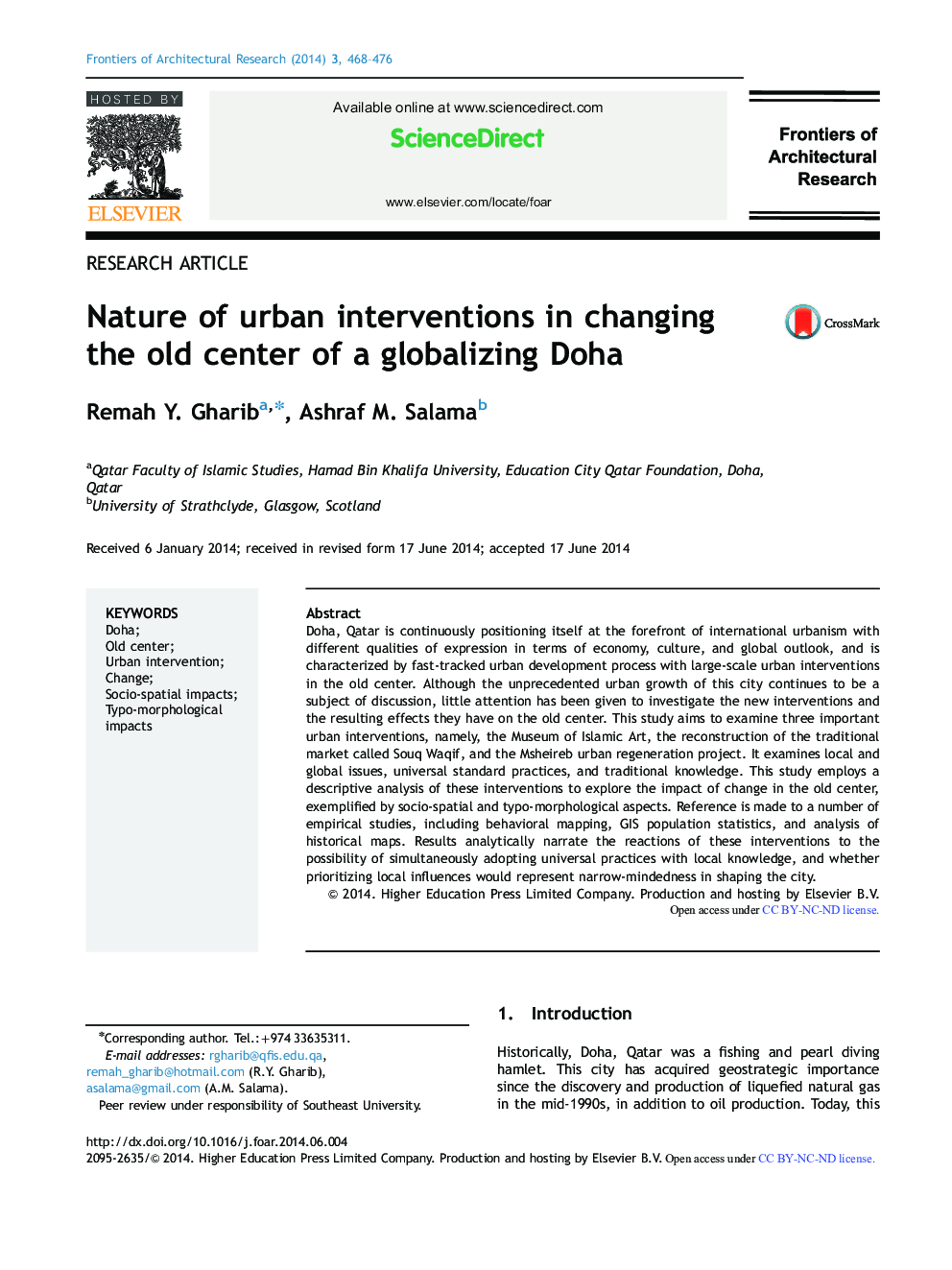| Article ID | Journal | Published Year | Pages | File Type |
|---|---|---|---|---|
| 270706 | Frontiers of Architectural Research | 2014 | 9 Pages |
Doha, Qatar is continuously positioning itself at the forefront of international urbanism with different qualities of expression in terms of economy, culture, and global outlook, and is characterized by fast-tracked urban development process with large-scale urban interventions in the old center. Although the unprecedented urban growth of this city continues to be a subject of discussion, little attention has been given to investigate the new interventions and the resulting effects they have on the old center. This study aims to examine three important urban interventions, namely, the Museum of Islamic Art, the reconstruction of the traditional market called Souq Waqif, and the Msheireb urban regeneration project. It examines local and global issues, universal standard practices, and traditional knowledge. This study employs a descriptive analysis of these interventions to explore the impact of change in the old center, exemplified by socio-spatial and typo-morphological aspects. Reference is made to a number of empirical studies, including behavioral mapping, GIS population statistics, and analysis of historical maps. Results analytically narrate the reactions of these interventions to the possibility of simultaneously adopting universal practices with local knowledge, and whether prioritizing local influences would represent narrow-mindedness in shaping the city.
